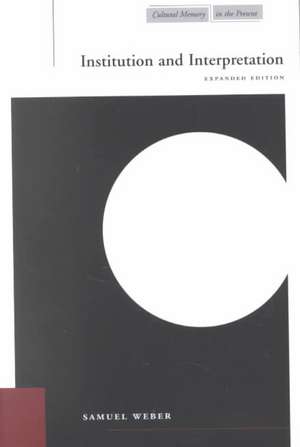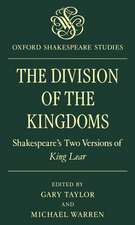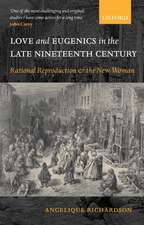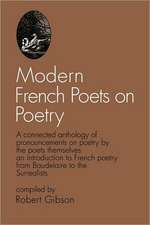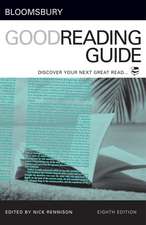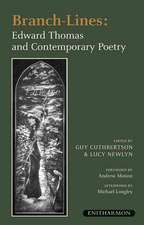Institution and Interpretation: Expanded Edition: Cultural Memory in the Present
Autor Samuel Weberen Limba Engleză Paperback – 30 sep 2002
Institution and Interpretation investigates the forces that shape and limit interpretive practices. Whereas the prevailing use of the term institutions tends to reduce their role to that of maintaining the status quo, Weber suggests that institutions are never entirely free of the need to consolidate their authority through an ambivalent process of reinstituting themselves, a process in which interpretation plays a crucial role. Interpretation thus emerges not only as an activity made possible by institutions but as an essential component of their operation.
To the book's original nine essays—addressing such topics as professionalism in criticism, the relation between psychoanalysis and hermeneutics, and the contemporary situation of the humanities—this new edition adds six essays, one of them previously unpublished. Topics discussed include the future of the university and of the humanities, Kierkegaard's notion of "repetition," Josiah Royce's conception of a "community" of interpretation, and the problematic place of reading in reader-response theory.
Reviews of the First Edition
"One of the primary proposals of Samuel Weber's important new book is that we must look at what institutions exclude and delimit as well as what they include and enable."
—Critical Texts
"A text of major importance and remarkable originality. For the first time, the antecedents and the complexities of the question are clearly defined and understood."
—Paul de Man, 1983
"Institution and Interpretation recommends itself here for its rigorous appraisal of the process through which oppositions come to be instituted. . . . It provokes a rethinking of gender in all of its 'contingent essentiality.'"
—Genders
To the book's original nine essays—addressing such topics as professionalism in criticism, the relation between psychoanalysis and hermeneutics, and the contemporary situation of the humanities—this new edition adds six essays, one of them previously unpublished. Topics discussed include the future of the university and of the humanities, Kierkegaard's notion of "repetition," Josiah Royce's conception of a "community" of interpretation, and the problematic place of reading in reader-response theory.
Reviews of the First Edition
"One of the primary proposals of Samuel Weber's important new book is that we must look at what institutions exclude and delimit as well as what they include and enable."
—Critical Texts
"A text of major importance and remarkable originality. For the first time, the antecedents and the complexities of the question are clearly defined and understood."
—Paul de Man, 1983
"Institution and Interpretation recommends itself here for its rigorous appraisal of the process through which oppositions come to be instituted. . . . It provokes a rethinking of gender in all of its 'contingent essentiality.'"
—Genders
| Toate formatele și edițiile | Preț | Express |
|---|---|---|
| Paperback (1) | 263.26 lei 6-8 săpt. | |
| Stanford University Press – 30 sep 2002 | 263.26 lei 6-8 săpt. | |
| Hardback (1) | 778.68 lei 6-8 săpt. | |
| Stanford University Press – 30 sep 2002 | 778.68 lei 6-8 săpt. |
Din seria Cultural Memory in the Present
-
 Preț: 173.10 lei
Preț: 173.10 lei -
 Preț: 197.12 lei
Preț: 197.12 lei -
 Preț: 365.56 lei
Preț: 365.56 lei -
 Preț: 193.14 lei
Preț: 193.14 lei -
 Preț: 194.26 lei
Preț: 194.26 lei -
 Preț: 155.84 lei
Preț: 155.84 lei -
 Preț: 155.89 lei
Preț: 155.89 lei -
 Preț: 149.68 lei
Preț: 149.68 lei -
 Preț: 211.98 lei
Preț: 211.98 lei -
 Preț: 228.62 lei
Preț: 228.62 lei -
 Preț: 206.94 lei
Preț: 206.94 lei -
 Preț: 209.36 lei
Preț: 209.36 lei -
 Preț: 193.58 lei
Preț: 193.58 lei -
 Preț: 156.25 lei
Preț: 156.25 lei -
 Preț: 146.22 lei
Preț: 146.22 lei -
 Preț: 171.47 lei
Preț: 171.47 lei -
 Preț: 194.45 lei
Preț: 194.45 lei -
 Preț: 229.26 lei
Preț: 229.26 lei -
 Preț: 296.64 lei
Preț: 296.64 lei -
 Preț: 210.24 lei
Preț: 210.24 lei -
 Preț: 228.62 lei
Preț: 228.62 lei -
 Preț: 278.31 lei
Preț: 278.31 lei -
 Preț: 298.62 lei
Preț: 298.62 lei -
 Preț: 153.16 lei
Preț: 153.16 lei -
 Preț: 193.58 lei
Preț: 193.58 lei -
 Preț: 204.76 lei
Preț: 204.76 lei -
 Preț: 228.39 lei
Preț: 228.39 lei -
 Preț: 139.64 lei
Preț: 139.64 lei -
 Preț: 243.46 lei
Preț: 243.46 lei -
 Preț: 201.90 lei
Preț: 201.90 lei -
 Preț: 152.36 lei
Preț: 152.36 lei -
 Preț: 226.40 lei
Preț: 226.40 lei -
 Preț: 169.59 lei
Preț: 169.59 lei -
 Preț: 197.12 lei
Preț: 197.12 lei -
 Preț: 194.88 lei
Preț: 194.88 lei -
 Preț: 170.65 lei
Preț: 170.65 lei -
 Preț: 194.45 lei
Preț: 194.45 lei -
 Preț: 151.12 lei
Preț: 151.12 lei -
 Preț: 194.01 lei
Preț: 194.01 lei -
 Preț: 194.45 lei
Preț: 194.45 lei -
 Preț: 208.06 lei
Preț: 208.06 lei -
 Preț: 196.69 lei
Preț: 196.69 lei -
 Preț: 142.73 lei
Preț: 142.73 lei -
 Preț: 466.13 lei
Preț: 466.13 lei -
 Preț: 167.15 lei
Preț: 167.15 lei -
 Preț: 194.45 lei
Preț: 194.45 lei -
 Preț: 173.51 lei
Preț: 173.51 lei -
 Preț: 232.11 lei
Preț: 232.11 lei -
 Preț: 207.13 lei
Preț: 207.13 lei -
 Preț: 150.09 lei
Preț: 150.09 lei
Preț: 263.26 lei
Nou
Puncte Express: 395
Preț estimativ în valută:
50.38€ • 52.28$ • 42.11£
50.38€ • 52.28$ • 42.11£
Carte tipărită la comandă
Livrare economică 15-29 martie
Preluare comenzi: 021 569.72.76
Specificații
ISBN-13: 9780804731195
ISBN-10: 0804731195
Pagini: 304
Dimensiuni: 152 x 229 x 22 mm
Greutate: 0.42 kg
Ediția:1
Editura: Stanford University Press
Colecția Stanford University Press
Seria Cultural Memory in the Present
ISBN-10: 0804731195
Pagini: 304
Dimensiuni: 152 x 229 x 22 mm
Greutate: 0.42 kg
Ediția:1
Editura: Stanford University Press
Colecția Stanford University Press
Seria Cultural Memory in the Present
Recenzii
"One of the primary proposals of Samuel Weber's important new book is taht we must look at what institutions exclude and delimit as well as what they include and enable."—Critical Texts
"A text of major importance and remarkable originality. For the frist time, the antecedents and the complexities of the question are clearly defined and understood."—Paul de Man, 1983
"Institution and Interpretation recommends itself here for its rigorous appraisal of the process through which oppositions come to be instituted. . . . It provokes a rethinking of gender in all of its 'contingent essentiality.'"—Genders
Notă biografică
Samuel Weber is Professor of English at the University of California, Los Angeles, and Director of the UCLA Paris Program in Critical Theory. Among his many books are The Legend of Freud: Expanded Edition (Stanford, 2000) and Mass Mediauras: Form, Technics, Media (Stanford, 1996).
Textul de pe ultima copertă
“One of the primary proposals of Samuel Weber’s important new book is taht we must look at what institutions exclude and delimit as well as what they include and enable.”—Critical Texts
“A text of major importance and remarkable originality. For the frist time, the antecedents and the complexities of the question are clearly defined and understood.”—Paul de Man, 1983
“A text of major importance and remarkable originality. For the frist time, the antecedents and the complexities of the question are clearly defined and understood.”—Paul de Man, 1983
Descriere
This book investigates the forces that shape and limit interpretive practices. Weber suggests that institutions are never entirely free of the necessity of consolidating their authority through an ambivalent process of reinstituting themselves, a process in which interpretation plays a crucial role.
